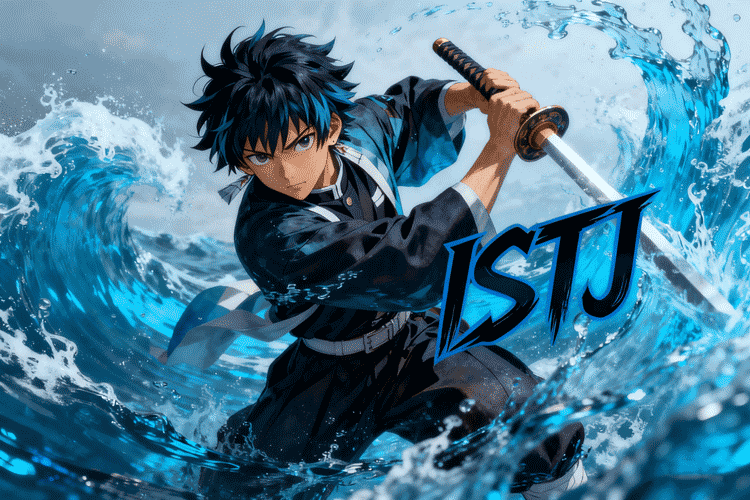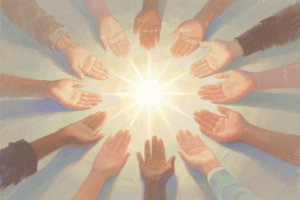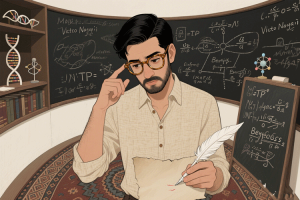This article explores the “Giyu Tomioka MBTI,” analyzing his inner world, psychological traits, and role within Demon Slayer, while connecting his character to MBTI theory and real-life insights.
Introduction: Why Explore Giyu Tomioka’s MBTI?
In Demon Slayer: Kimetsu no Yaiba, Giyu Tomioka is known as the Water Hashira of the Demon Slayer Corps. Silent, stoic, and dedicated, he stands out as one of the most complex figures in the series. Fans often wonder: if we were to assign a Myers-Briggs personality type to him, what would it be? This article delves into the “Giyu Tomioka MBTI,” unpacking his character traits, decision-making patterns, and interpersonal dynamics.
A Quick Overview of MBTI

Before breaking down the “Giyu Tomioka MBTI,” let’s briefly review MBTI itself. The Myers-Briggs Type Indicator (MBTI) divides personalities into 16 categories based on four dimensions:
Extraversion (E) vs. Introversion (I) Intuition (N) vs. Sensing (S) Thinking (T) vs. Feeling (F) Judging (J) vs. Perceiving (P)
By analyzing Giyu’s behavior, decisions, and relationships, we can better determine where he falls on these spectrums.
Giyu Tomioka’s Core Personality Traits
1. Introversion (I)
Giyu is reserved and withdrawn, often misinterpreted as cold or indifferent. Unlike characters such as Tanjiro, who openly express warmth, Giyu prefers solitude and internal reflection, aligning with introversion.
2. Sensing (S)
In combat, Giyu relies on sharp awareness of his environment, using immediate data and sensory input to adapt. His precision in Water Breathing forms reflects a practical, reality-focused mindset, characteristic of Sensing types.
3. Thinking (T)
Giyu makes decisions rooted in logic rather than emotional influence. His choice to spare Tanjiro and Nezuko wasn’t driven by sentimentality but by rational analysis of their situation, showcasing Thinking dominance.
4. Judging (J)
His disciplined nature and respect for Demon Slayer Corps rules highlight his Judging orientation. He values order, duty, and responsibility, often prioritizing long-term mission goals over personal desires.
Conclusion: The Giyu Tomioka MBTI is most consistent with ISTJ.
Why ISTJ Fits Giyu Tomioka Best
ISTJs are known as dependable “inspectors,” driven by duty, loyalty, and structured thinking. They are:
Reliable and disciplined Rational and grounded Quiet yet resilient Often misunderstood as cold
Giyu embodies all of these. Though he struggles with communication, his actions consistently reveal responsibility and inner strength.
Comparing Giyu’s MBTI to Other Characters
Giyu Tomioka vs. Tanjiro Kamado
Tanjiro leans toward ENFJ—empathetic, people-oriented, and expressive. Giyu’s ISTJ personality creates a balance with Tanjiro’s warmth, reinforcing a mentor-protégé dynamic that enriches the narrative.
Giyu Tomioka vs. Shinobu Kocho
Shinobu is often typed as ENTP—clever, witty, and verbally agile. Her playful contrasts with Giyu’s stoicism generate tension, intrigue, and one of the most dynamic pairings in the series.
Fan Perspectives on “Giyu Tomioka MBTI”
Across Reddit, Twitter, and anime forums, fans actively debate the “Giyu Tomioka MBTI.” Some argue he leans INTJ due to his strategic depth, while others emphasize his grounded reliance on lived experiences, placing him firmly as ISTJ.
Psychologists and MBTI enthusiasts also highlight his archetype as a “guardian,” someone whose quiet resilience provides stability in chaotic environments.
Life Lessons from Giyu Tomioka’s MBTI
Analyzing the “Giyu Tomioka MBTI” yields valuable takeaways:
Responsibility defines strength – True leadership lies in duty, not words. Silence is not weakness – ISTJs may lack outward warmth, but they express loyalty through consistent action. Diversity strengthens teams – Pairing ISTJs like Giyu with other personality types fosters balance and adaptability.
Expanding with Pop Culture & Current Relevance
With the release of Demon Slayer: Swordsmith Village Arc and anticipation for the Hashira Training Arc, discussions about “Giyu Tomioka MBTI” have surged. On TikTok and YouTube, creators analyze his stoic persona, comparing him to real-world ISTJs like historical military leaders and modern professionals.
Some popular takes include:
Relatability to real-life ISTJs: Fans who share this type often resonate with Giyu’s quiet dedication and misunderstood personality. Giyu memes and edits: His stoic demeanor is often humorously exaggerated online, showing how ISTJ traits can be both admirable and meme-worthy. Cross-fandom comparisons: Fans have compared Giyu to other ISTJ-coded characters, such as Levi Ackerman (Attack on Titan) and Itachi Uchiha (Naruto).
This blend of anime fandom culture and psychological analysis has kept the “Giyu Tomioka MBTI” discussion alive in mainstream fandom spaces.
Giyu Tomioka’s MBTI in Real-Life Context
Understanding Giyu’s ISTJ personality can also inspire real-world reflection. People with this personality type often excel in:
Structured careers (law, military, engineering) Leadership roles requiring responsibility and discipline Situations that demand reliability under pressure
Just like Giyu, ISTJs may struggle with emotional expression, but their consistency makes them indispensable pillars in teams, families, and organizations.
Conclusion
The “Giyu Tomioka MBTI” is best described as ISTJ—the steadfast, disciplined, and rational personality type. Though often misunderstood, Giyu’s silence masks deep loyalty and resilience. His presence in Demon Slayer highlights the value of duty, logic, and responsibility, both in fiction and in real life.
By reflecting on Giyu’s MBTI, fans gain not only a deeper understanding of the Water Hashira but also a greater appreciation for ISTJs in everyday life.
Unlike INTJs, who rely heavily on abstract strategies, Giyu focuses on concrete details, lived experiences, and disciplined execution, aligning more with ISTJ traits.
Giyu provides rational grounding and discipline, while Tanjiro offers empathy and warmth, making them a balanced and effective duo.
ISTJs like Giyu may struggle with communication, appear distant, and often get misunderstood by peers.
ISTJs thrive in structured, duty-driven fields such as medicine, law enforcement, engineering, and the military.





